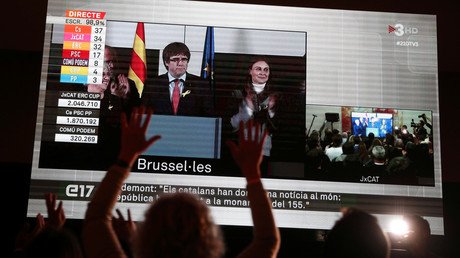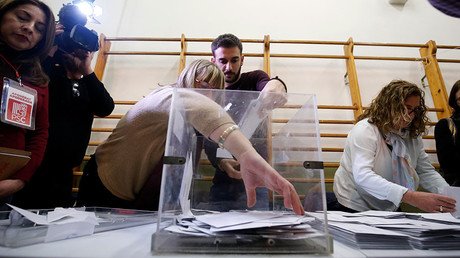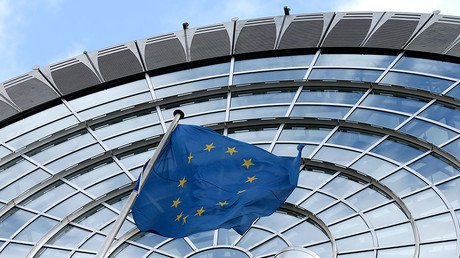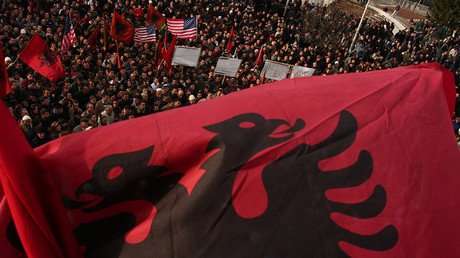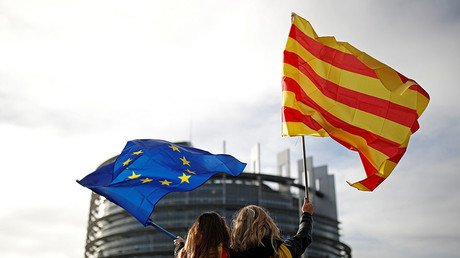‘Extraordinary moment for democracy in Europe: Madrid got strong message from Catalonia’
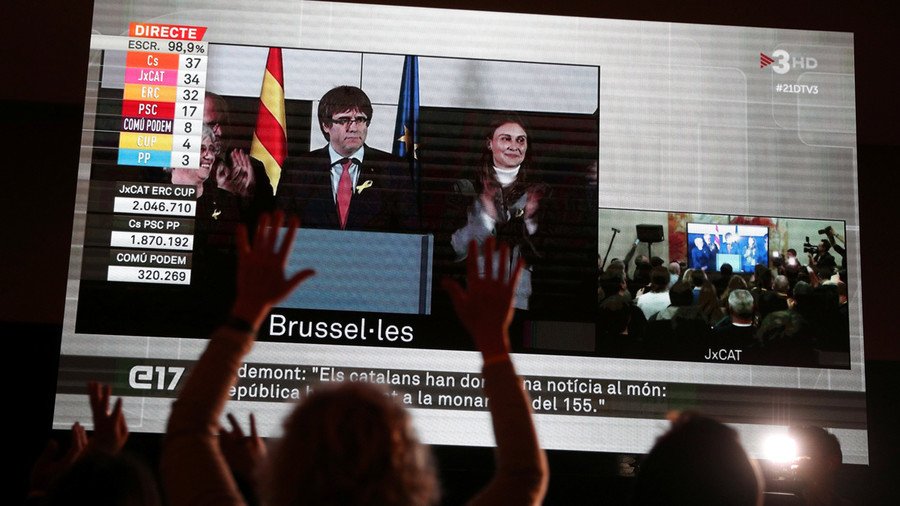
Madrid government has used all the tools in its toolbox against pro-independence movement in Catalonia, except for negotiations, says Thomas Harrington, professor of Iberian Studies at Trinity College in Hartford.
Pro-independence parties in the Spanish region of Catalonia have declared victory after securing a majority in local elections held on Thursday, December 21.
Three parties, Together for Catalonia (JxCat), Esquerra Republicana (ERC) and Popular Unity Candidacy (CUP), secured 70 parliamentary seats collectively, with 68 required for an absolute majority in the 135-seat assembly.
While the pro-unionist Citizens Party won the election by a small margin in terms of vote share, it wouldn't be able to form a large enough coalition to take power.
Spanish Prime Minister Mariano Rajoy has ruled out calling a national election following the vote. However, he said he would make an effort to hold talks with the region’s new government. Later on Friday, the prime minister also rejected a call by former Catalan leader Carles Puigdemont to agree to an “unconditional” meeting with him in a European location besides Spain.
RT discussed the election with Thomas Harrington, professor of Iberian Studies at Trinity College in Hartford, Connecticut who believes Madrid used all tools possible to tighten its grip on Catalonia.
RT: What do you make of the results of the vote? Are you surprised the pro-independence parties have come out on top?
Thomas Harrington: What we are seeing is really an extraordinary happening. We have a Spanish state that tried all of the means at its disposal to discourage this vote. We had the majority of the Spanish media telling us over and over again that what happened in 2015 was an aberration. They were even saying things like Catalonia had an ‘independentist’ minority trying to impose itself on a unionist majority. Well now, after having used all of these tools of repression to the point of doing things as absurd as trying to stop people from wearing yellow in public or stopping the use of yellow because it was used for ribbons to remind people of the prisoners, in Madrid they have; despite trying to use all of these tools, the independentists have won. It is an extraordinary moment for democracy in Europe.
RT: What sort of reaction do you expect from Madrid if Catalonia forms another pro-independence government?
TH: This is the thing. Right now, the problem is that the Madrid government and the Madrid media apparatus have gone through all of the tools in their toolbox: they’ve used violence, they’ve used media demonization, they’ve tried to ban the color yellow. They’ve tried to go after the Catalan autonomous TV station simply for calling the president “a president-in-exile.” I don’t know what other tools they have left. Certainly, what we have seen up until now is that the negotiation is not one of their tools. And sadly, negotiation is the only tool that could have headed all of this off a long time ago.
RT: The former Catalan leader, Carles Puigdemont, has asked for an apology from the Spanish government. Do you think he'll get one?
TH: I do not think he is going to get one. The current group we have in Madrid, and I think it is worth saying over and over again, is a group that comes out, what they say in Spanish, is the ‘sociology of Francoism.’ These are the sons and the grandsons ideologically and in many cases familiarly of people who were very important in the Francoist government. They have a vision of Spain that says that “Castilian culture is dominant, will always be dominant and if you don’t like that, we will use force” - as they did on October, 1, and all of the other tools at their disposal to try and put the Catalans back in their place. But with this, the Catalans have said: “You are not going to tell me.” At least, the strong majority of the Catalans said “You are not going to tell me what my place is and I want to support the institutions of my… national government.”
RT: One pro-independence politician has declared that Article 155 of the Spanish Constitution, which allowed Madrid to take control of Catalonia is now “dead and buried.” Would you agree?
TH: I think it is still on the books, although it was misused in this case because it was only designed, and this hasn’t been reported widely, for armed rebellion. There was no such armed rebellion, and nevertheless, it was applied. But Article 155 seems to have outlived its usefulness. That doesn’t mean the people in Madrid will not continue to try and use it against the Catalans. But I think they got a very strong message that they won’t go very far with that and maybe it is time to negotiate.
‘Major blow to EU’: Senior Russian senator compares Catalonia election results to Brexit https://t.co/PjdgO4w9Flpic.twitter.com/wVW7zieZ7h
— RT (@RT_com) December 22, 2017
‘Threat to Spanish constitutional order’
Martin Roberts, a Madrid-based journalist explains the uncertainty is likely to continue for several weeks now because while the pro-independence parties “do have a majority between them, no single party has anything like a majority of votes.” In his view, if they don’t reach a deal the election will have to be repeated.
Roberts added that in his opinion, the international community is going to be paying very close attention to further developments because of the “tensions and violence” of the recent weeks.
“[They are going] to see whether the push for independence has increased, remains stable or subsided. Because this is the biggest threat to Spanish constitutional order since the country returned to democratic government in 1978,” he told RT.
‘Victory despite worst imaginable conditions during election campaign’
Vicent Partal, the editor of VilaWeb, called the election result “a clear answer to the coup d’état made by the Spanish government” that despite “the worst imaginable conditions” for the campaign the Catalan pro-independence parties managed to win.
Partal said the Catalan branch of Spain’s ruling People’s Party got only about four percent of the votes.
“People’s Party has almost disappeared in the Catalan parliament, which is also a clear message to the Spanish government and especially, personally to Prime Minister Mariano Rajoy,” he told RT.
As to further developments that would very much depend on whether the Spanish government accepts the Catalan election results, Partal said.
“If the Spanish government really believes in the democratic process, it is absolutely clear they must accept the results,” he said, adding that these are the results “of a legal election called by the Spanish government.”
“The pro-independence parties won the election using the tools of the Spanish government – the Spanish government has nothing they can say against this election because they were organized by them. The question is, will Spain accept the results? If they accept the results, if they accept democracy, the only solution is a direct dialogue between the Spanish government and the Catalan government. The legitimate Catalan government is in Brussels now, that means that president Puigdemont must be again in office, the prisoners that are in jail must be released,” Partal said. “Both governments then must engage in dialogue about the independence of Catalonia because the message of the voters is extremely clear.”
